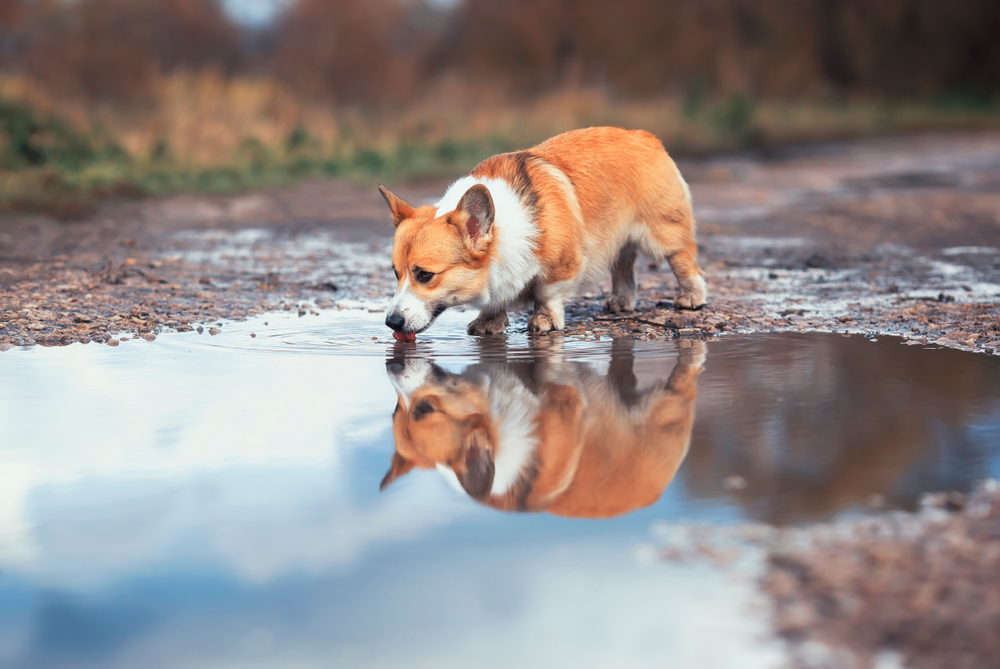Answers to Common Questions About Leptospirosis in Dogs

Leptospirosis is the most widespread zoonotic disease in the world. A zoonotic disease can be spread between animals and humans, meaning you can catch leptospirosis from your pet if they become ill. Our team at Bayside Animal Hospital wants to answer some common questions about this concerning disease, to help you understand the condition, and to take the necessary steps to prevent you and your pet from becoming infected.
Question: What is leptospirosis and how can my dog be infected?
Answer: Leptospirosis is a bacterial infection caused by the bacteria Leptospira. Numerous strains can cause infection across the United States, but the most common culprits include L. canicola, L. icterohaemorrhagiae, L. pomona, and L. grippotyphosa. Leptospira bacteria thrive in warm conditions, especially where annual rainfall levels are high. Many species can carry the bacteria, including cattle, pigs, horses, dogs, rodents, and wild animals. Humans are also susceptible to the disease.
Infection is transmitted through contact with an infected animal’s bodily fluids (e.g., urine, blood, and saliva) or contaminated soil, food, or water. The bacteria can enter the body through the mucous membranes or skin, especially any small wounds. Your pet can also become infected by drinking contaminated water, or eating from a contaminated carcass. A bite from an infected animal can also result in transmission. Your dog is at higher risk if they swim and drink from natural water sources, roam across rural land, or frequently contact wild animals, farm animals, or rodents.
Q: What signs will my dog exhibit if affected by leptospirosis?
A: The Leptospira bacteria settle in the liver and kidneys and can cause kidney or liver failure. Mildly infected dogs may show no signs, but can still spread the disease.
Other signs may include:
- Fever
- Lethargy
- Decreased appetite
- Vomiting and diarrhea
- Jaundice (i.e., skin and mucous membranes acquire a yellowish tinge)
- Inflammation inside the eyes
- Difficulty breathing
- Nosebleeds
- Blood in urine and feces
Q: How is leptospirosis diagnosed in my dog?
A: Routine tests, such as a complete blood count, biochemical profile, and urinalysis, will likely show changes in an infected dog, but these tests cannot definitively diagnose leptospirosis. DNA-PCR tests and microscopic agglutination tests are available that can detect the bacteria in blood and urine. Other tests, such as X-rays and ultrasound, may be necessary to determine how significantly your dog’s liver and kidneys are affected.
Q: Will my dog need hospitalization if they have leptospirosis?
A: If your dog’s liver or kidneys are affected by the disease, they will likely require hospitalization for supportive care to prevent further damage. Dogs suffering from severe vomiting and diarrhea will also need hospitalization to receive intravenous fluids to correct dehydration. Dogs with milder cases usually require only antibiotic treatment to clear the infection. Any other household dog should also receive appropriate antibiotics for two weeks.
Q: What is the prognosis for my dog with leptospirosis?
A: If appropriate treatment is started early, dogs affected by leptospirosis have a good prognosis, although some patients will have lasting kidney or liver changes that will require lifelong monitoring and care.
Q: How can I protect my family if my dog has leptospirosis?
A: Follow the recommended antibiotics course, and do not stop giving the medication if your dog’s signs resolve. Residual infection could remain, resulting in a relapse. Wash your hands frequently and thoroughly after handling your dog, and avoid contacting their urine. If they urinate in the home, wear gloves, and disinfect the area promptly Do not allow your dog to urinate in standing water, or in areas populated by other people and animals. Normal daily activities will not put you at high risk for infection, but children younger than 5, adults older than 65, and immune-compromised people should take extra precautions. If you believe you have signs indicating leptospirosis, contact your physician immediately.
Q: How can I prevent my dog from contracting a leptospirosis infection?
A: Prevent your dog from swimming in or drinking from natural water sources, if possible. On outings, take bottled water and a water bowl and let your dog drink regularly, to decrease their desire to drink from natural sources. Do not allow your pet to eat animal carcasses, or to roam unsupervised in rural areas. If your pet frequently contacts wild animals or farm animals, or you often hike in rural areas, ask our veterinary professionals at Bayside Animal Hospital if your pet should receive the leptospirosis vaccination.
Leptospirosis is a concerning disease, but one that can easily be prevented if the right precautions are taken. If you are concerned that your dog may be suffering from leptospirosis, or you would like to discuss vaccination for your dog, contact our team at Bayside Animal Hospital.


